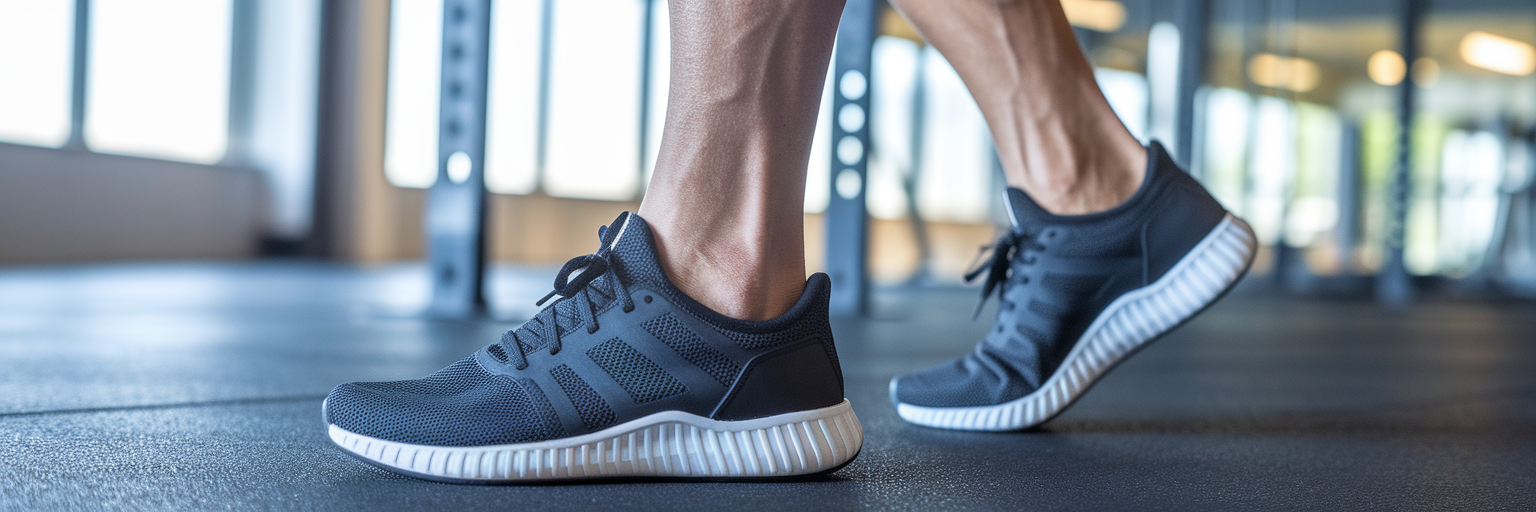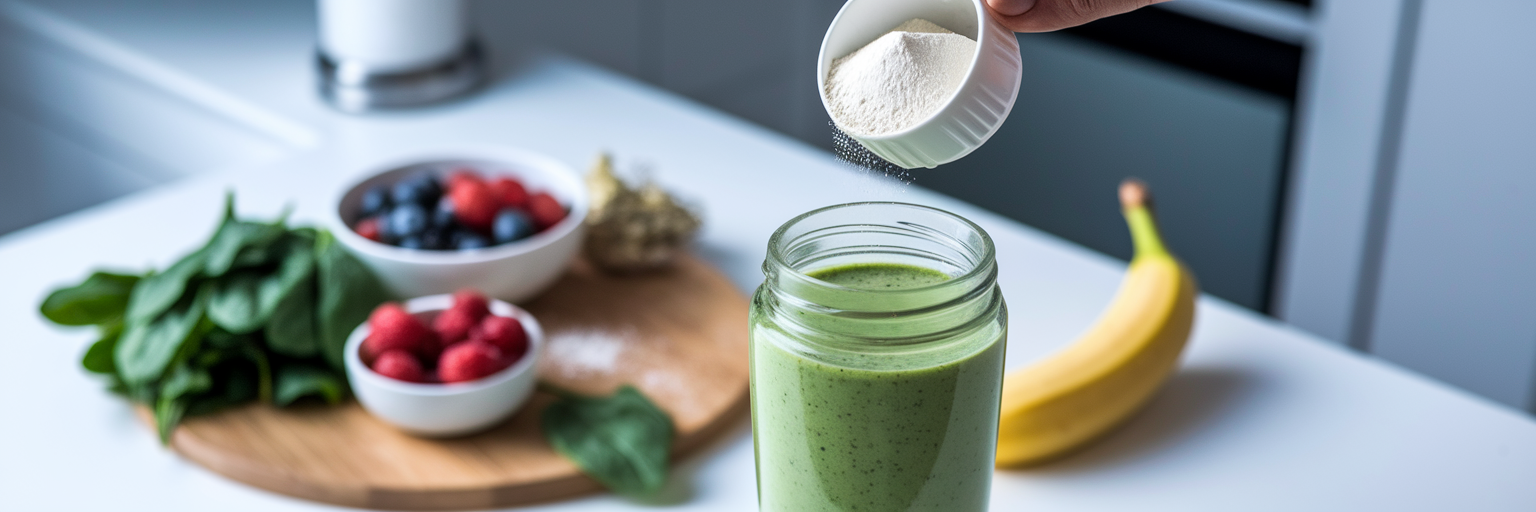Creatine's Role in a Plant-Based Fitness Plan
We can all picture the scene: you’re dedicated to your plant-based lifestyle, you meticulously prep your meals, and you never miss a workout. Yet, you feel like you’ve hit a wall with your strength gains. That last rep on the squat rack feels just out of reach, and your progress has stalled. It’s a common frustration, but what if a small adjustment could help you push past that plateau?
Enter creatine monohydrate. It’s not a magic pill, but rather a well-researched tool that acts like a recharge pack for your muscles. Think of it as the extra battery that helps you generate energy for quick, powerful movements. The challenge for vegans is that creatine is naturally found in meat and fish. This means plant-based eaters almost always have lower creatine stores, which can directly impact peak power and performance.
This article is here to cut through the noise. We’ll debunk the most common myths about creatine with solid evidence and offer clear, actionable guidance on creatine for plant based athletes, helping you make an informed decision for your fitness journey.
Myth 1: Creatine Is Only for Elite Bodybuilders
When you hear "creatine," you might picture a massive bodybuilder lifting superhuman weights. While it certainly helps them, that image is incredibly narrow. The truth is, creatine’s benefits extend far beyond building sheer size, making it a valuable supplement for a wide range of active people.
More Than Just Muscle: Power for Every Athlete
Creatine’s main job is to help regenerate ATP, your body’s primary source of high-octane energy. This isn't just for lifting heavy; it’s for any activity that requires a short, intense burst of effort. If you’re pushing your limits, creatine can help.
Consider how it applies to popular fitness activities:
- CrossFit WODs: It provides the explosive power needed for box jumps and Olympic lifts.
- HIIT Classes: It helps you go all-out during those 30-second sprints on the bike or rower.
- Sprinting: Whether you're a runner or cyclist, it supports those final bursts of speed.
- Team Sports: It fuels the quick, powerful plays in soccer, basketball, or hockey.
For anyone looking to improve their performance, from dedicated gym-goers to weekend warriors, creatine supports functional strength. This makes it one of the best creatine for muscle growth options that focuses on performance, not just bulk. And yes, the benefits are just as relevant for creatine monohydrate for women seeking to get stronger and faster.
A Boost for Your Brain, Too
Here’s something often overlooked: your brain is a high-energy organ. It uses a significant amount of your body’s ATP. Emerging research suggests that creatine supplementation can help reduce mental fatigue and support cognitive functions like short-term memory. For anyone juggling a demanding job, family life, and a tough training schedule, that mental boost can be just as valuable as a physical one. If you want to explore the science behind these advantages, you can find a deeper explanation of the foundational creatine benefits on our blog.
Myth 2: It Causes Bloating and Unwanted Weight Gain
Let's tackle one of the biggest hesitations head-on: the fear of looking puffy or bloated. Many athletes, especially those focused on a lean physique, worry that creatine will undo their hard work. This concern usually comes from a misunderstanding of how creatine works in the body.
When you start taking creatine, you might notice a slight increase on the scale. This isn't fat. It's water being pulled inside your muscle cells, a process called intracellular hydration. This is actually a good thing. It’s a sign the creatine is working, helping to support muscle protein synthesis and giving your muscles a fuller, more defined look, not a soft or bloated one.
So, does creatine cause bloating in the uncomfortable, subcutaneous way? Not when used correctly. The main culprit behind digestive issues and that puffy feeling is an outdated practice called "loading," which involves taking up to 20 grams a day. This approach is unnecessary and often leads to stomach discomfort.
The solution is simple: stick to a consistent, low dose of 3-5 grams per day. Your muscles will become fully saturated over a few weeks, giving you all the benefits without the side effects. It’s a marathon, not a sprint. If you have more specific questions about ingredients or how our supplements work, you can always find answers on our FAQ page.
Myth 3: Vegans Don't Need Extra Creatine
This might be the most important myth to debunk for our community. While the body produces a small amount of creatine on its own, omnivores get a significant daily top-up from red meat and fish. Since plant-based diets lack these direct sources, the conversation around supplementation changes completely.
Research consistently shows that vegetarians and vegans have lower resting levels of creatine in their muscles. A comprehensive review published by the National Center for Biotechnology Information (NCBI) highlights that creatine supplementation can be particularly effective for improving performance in individuals on plant-based diets. You can review the findings from the study by Kreider et al. yourself.
These lower levels aren't just a number on a chart; they can translate to real-world performance issues. You might feel less powerful in the gym, get tired faster during high-intensity sets, or notice that your recovery between efforts is slower. For this reason, supplementation acts as a powerful "equalizer" that bridges a genuine nutritional gap. In fact, because the starting baseline is lower, the vegan creatine benefits are often more noticeable, leading to significant improvements in strength and endurance.
| Metric | Typical Omnivore Diet | Typical Vegan Diet (No Supplements) | Potential Impact of Supplementation for Vegans |
|---|---|---|---|
| Dietary Creatine Intake | 1-2 grams/day | Virtually zero | Bridges the dietary gap completely |
| Muscle Creatine Stores | ~80% Saturated | ~60-70% Saturated | Reaches 100% saturation, matching or exceeding omnivores |
| High-Intensity Power Output | Baseline Normal | Potentially Reduced | Significant increase in strength and power |
| Recovery Between Sets | Standard | Potentially Slower | Improved capacity for repeated high-effort bursts |
Note: Figures are illustrative estimates based on scientific literature. Individual results can vary based on diet, genetics, and training.
How to Add Creatine to Your Vegan Routine
Ready to give it a try? Incorporating creatine into your daily habit is incredibly simple. Here’s a straightforward guide to get you started on the right foot.
- Choose Wisely: Look for a product that is pure creatine monohydrate. To ensure it aligns with your values, check for a "certified vegan" label. This guarantees that no animal-derived ingredients were used in its synthesis, giving you complete peace of mind.
- Keep it Simple (Dosage): The science is clear on this. A daily dose of 3-5 grams is all you need. There is no need for a "loading phase." This answers the common question of how much creatine for vegans is effective. A consistent, smaller dose works just as well to saturate your muscles and is much gentler on your system.
- Mix It In: Creatine powder is typically unflavored and dissolves easily. You can mix it with water, a splash of juice, or add it directly to your post-workout smoothie. For some delicious and easy ideas, check out these 3 easy vegan protein recipes from our blog.
- Be Consistent: This is the most important step. Creatine is not a pre-workout stimulant that you feel immediately. It works by accumulating in your muscles over time. Make it a daily habit, just like drinking water or taking a multivitamin, to see the best results.
If you're ready to take the next step, you can explore our pure, vegan-certified Creatine Monohydrate to support your fitness goals.
Your Next Step in Vegan Fitness
Hopefully, you’re feeling more confident about how creatine can fit into your plant-based lifestyle. To recap, it’s a safe, heavily researched supplement for all types of athletes, the "weight gain" is actually beneficial muscle hydration, and it’s an especially powerful tool for vegans looking to bridge a nutritional gap.
Think of it as a way to complement all the hard work you’re already putting in at the gym and in the kitchen. It’s about optimizing your efforts, not finding a shortcut.
Feel more confident about creatine? Share this article with a friend who might find it helpful! And if you're ready to see how it can support your goals, explore our blog for more tips on vegan fitness and nutrition.





